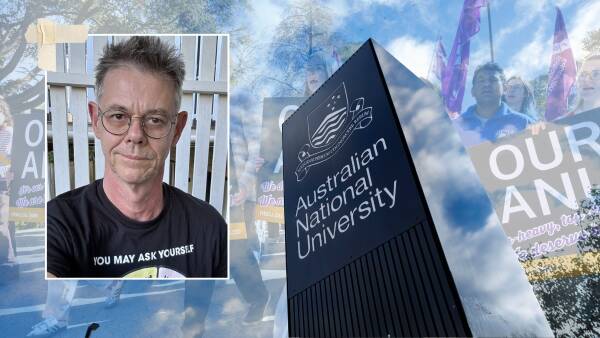
Academics at the Australian National University (ANU) and representatives from Transparency International are urging the institution to disclose the identities of advisors involved in its recent governance decisions. This call for transparency arises amid allegations of conflicts of interest and inadequate governance practices within the university.
Concerns Over Governance and Advisory Roles
Clancy Moore, chief executive of Transparency International Australia, emphasized the need for the ANU to openly share information regarding the advisors who played a role in critical decision-making processes. “Given the dark clouds engulfing ANU with reported conflicts of interest and poor governance, proactive disclosures and transparency are a must,” Moore stated.
ANU staff have expressed deep concerns about the university’s communications strategy, which they believe has been ineffective. Invoices recently acquired by The Canberra Times may provide insight into the advisors involved. For instance, a bill from the public relations firm 89 Degrees East listed four days of “communications and stakeholder engagement support” provided by Mike Kaiser, amounting to $13,000. The firm charged $3,250 per day for his services, with payment due on January 24, 2024.
The same company also billed the university for three-and-a-half days of similar support provided by Kimberley Gardiner, totaling $11,375. Gardiner, described as a seasoned communications professional, has a history of working with significant political figures, including Australia’s first female deputy prime minister.
Potential Conflicts of Interest
Currently, Kaiser holds a senior position as the top public servant in the Department of Climate Change, Energy, the Environment and Water. At the time he worked with ANU, he was a freelancer, which raises questions about potential conflicts of interest. His LinkedIn profile indicates he was transitioning between roles during this period, stating, “keeping the cobwebs at bay while the career reroutes.” He officially joined the department on July 14, 2024.
Moore pointed out the importance of transparency regarding the connections between public servants and their previous private sector roles to mitigate any future conflicts. “Transparency is the foundation for trust in government and public institutions,” he remarked.
In response to inquiries, Kaiser declined an interview request from The Canberra Times, with a spokesperson confirming that he had disclosed any potential conflicts of interest to relevant ministers. Kaiser, like Gardiner, has a notable history within the Labor Party, serving as a party organizer and state secretary in Queensland during the 1990s.
As ANU grapples with the challenge of cutting $100 million from its wage bill, the leadership faces increasing scrutiny. Kaiser’s experience in managing complex government operations may have provided valuable insights to the university during these turbulent times. On his social media, he has shared management advice, highlighting his approach to leadership and decision-making.
While the university continues to navigate these challenges, the calls for transparency remain a focal point in the ongoing discourse about governance at ANU.






